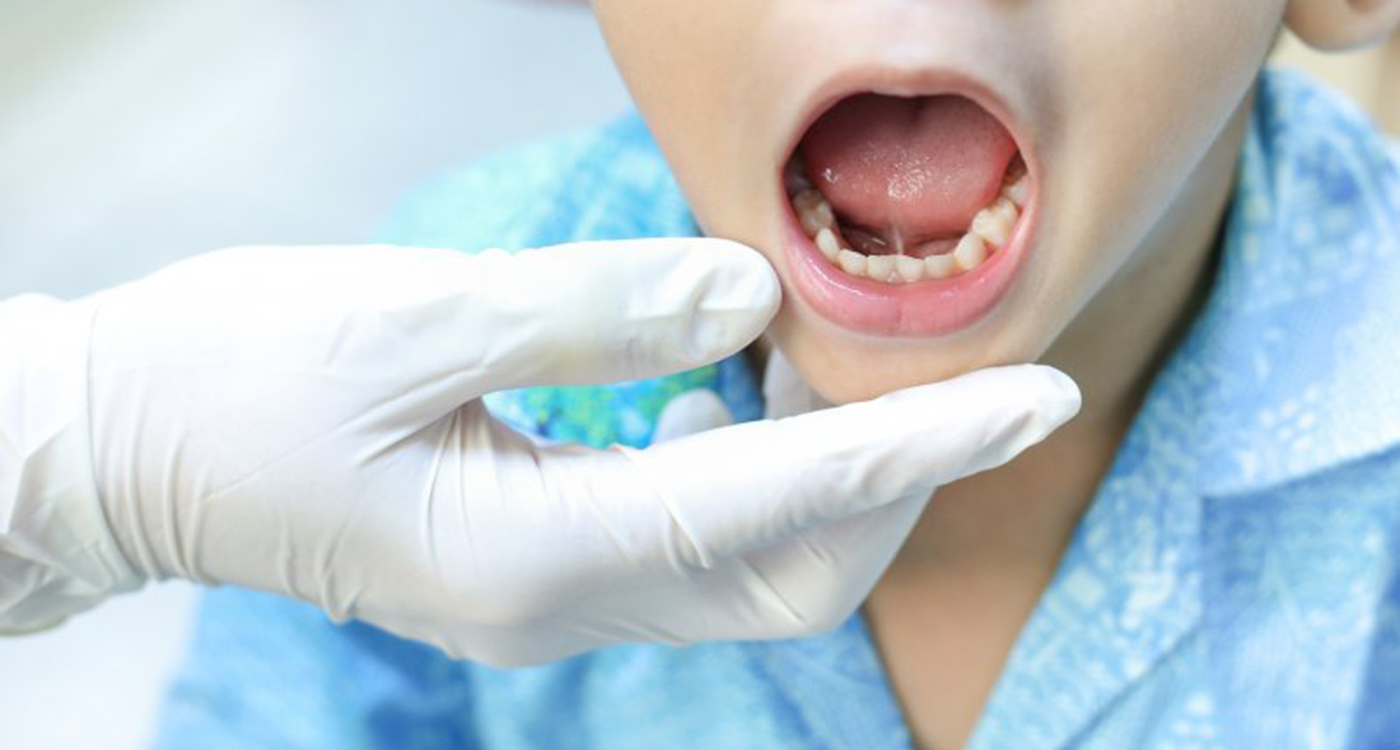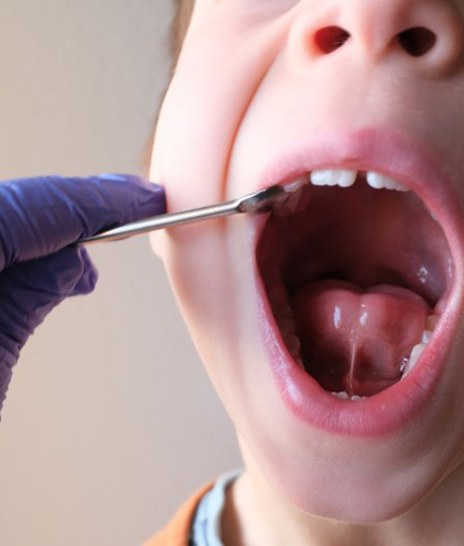Lip & Tongue Tie Treatment – Fort Worth, TX
Easy & Straightforward Services for Lip & Tongue Ties

Even the smallest of oral health issues can have a profound impact on a person’s future. Minor tissue problems like lip and tongue ties can negatively affect various things, such as breastfeeding, speech progress, and a child’s overall development. The good news is that our team at Trinity Pediatric Dentistry can perform a frenectomy to treat your little one’s situation so that they can enjoy a more comfortable and healthier smile in the future. Keep reading to learn more or give us a call today to schedule a consultation.
Why Choose Trinity Pediatric Dentistry for Lip & Tongue Tie Treatment?
- Sedation Dentistry Available for Optimal Comfort
- Soft Tissue Laser for Efficient Frenectomies
- Friendly & Expert Pediatric Dental Team
How Do Lip and Tongue Ties Develop?

A lip and tongue tie typically happens whenever the skin under the upper lip or tongue is thicker or shorter than normal. The small band known as the frenulum can often restrict certain movements in the mouth, which can become problematic later on. This structure usually develops before birth and can be linked to various factors, such as genetics or receiving insufficient nutrients during pregnancy. If you’re a parent and notice symptoms such as trouble breastfeeding, fussiness in infants, or digestive issues in your child, this could be due to a lip or tongue tie.
Why Is It Important to Treat Lip & Tongue Ties?

Not having your infant’s lip or tongue tie addressed early on can become problematic for them during childhood and even into adulthood. Without a lip/tongue tie release, they might develop issues like:
- Higher risk of teeth grinding, cavities, and other oral health problems
- Forward head posture
- Aversions to certain food textures
- Raised chance of snoring, obstructive sleep apnea, and other breathing issues
Not only can these problems affect their oral health, but they can also impact their self-esteem and overall quality of life.
Lip & Tongue Tie Treatment

For lip and tongue tie treatment, our team will typically perform a simple and quick procedure known as a frenectomy. This process starts with an initial consultation and thorough evaluation of your child’s mouth so that we can see the mobility of their tongue and lips with the frenulum. If your little one has a lip/tongue tie, we’ll develop a treatment plan to effectively remove the structure, freeing their movement and improving their oral and overall well-being. In some cases, we might be able to perform the treatment immediately after their examination!
Lip & Tongue-Tie FAQs
How should I prepare my baby to get a frenectomy?
As a parent, it’s completely natural to be anxious about your baby’s upcoming frenectomy. However, there’s not very much you can do to prepare for the treatment. Try to remain calm, as your child will likely pick up on your demeanor if you seem stressed or fearful. It’s recommended that you feed them between 60 and 90 minutes before the procedure so they are hungry enough to feed afterward. If you have any questions or concerns beforehand, please don’t hesitate to reach out to our friendly team at Trinity Pediatric Dentistry!
How long do frenectomies take?
Our office uses a precise soft tissue laser for our frenectomy procedures, making the process faster and more efficient. Typically, it only takes a couple of minutes to complete, but if the frenulum is especially thick or your child has both a lip and tongue tie, it may take a little bit longer.
Do frenectomies hurt?
Laser frenectomies are hardly uncomfortable. In fact, in most cases, local anesthesia isn’t even necessary. Instead of using traditional surgical scissors, our soft tissue laser evaporates the overgrown portion of the frenulum and cauterizes the area on-contact, minimizing post-operative bleeding, discomfort, and any risk of infection.
When can I start nursing after my baby gets a frenectomy?
Typically, nursing and feeding can resume immediately after your child’s frenectomy. In fact, it’s encouraged to help soothe your baby as well as provide them with essential nutrients to help them heal. In some cases, parents recognize improvement in latching abilities right away, while other babies may struggle to nurse right after their treatment. There’s no need to worry, though! With a little extra time to get used to their range of oral movement, they will get the hang of it!
What should I do after my child’s lip or tongue-tie has been treated?
After your child’s frenectomy, Dr. Meghan Thorburn will provide you with detailed post-operative exercises to do to prevent the tissue from reconnecting. In most cases, we recommend the following using clean hands:
- Take the upper lip or tongue and gently raise it upward for a few seconds. Make sure to do this gently, avoiding forcing it.
- Gently swipe a clean finger beneath the lip or tongue a few times each day for several days following the treatment.
Also, be sure to provide your child with any recommended pain medication as directed by either their pediatric dentist or the instructions on the packaging.
